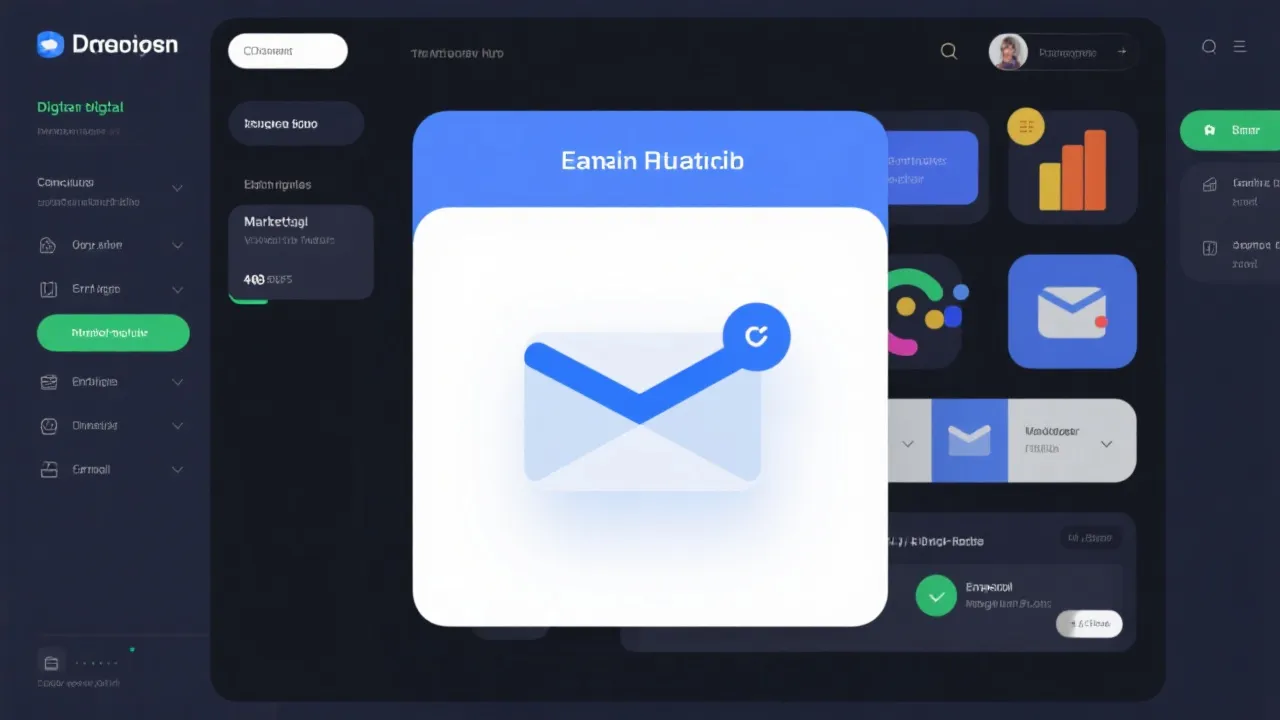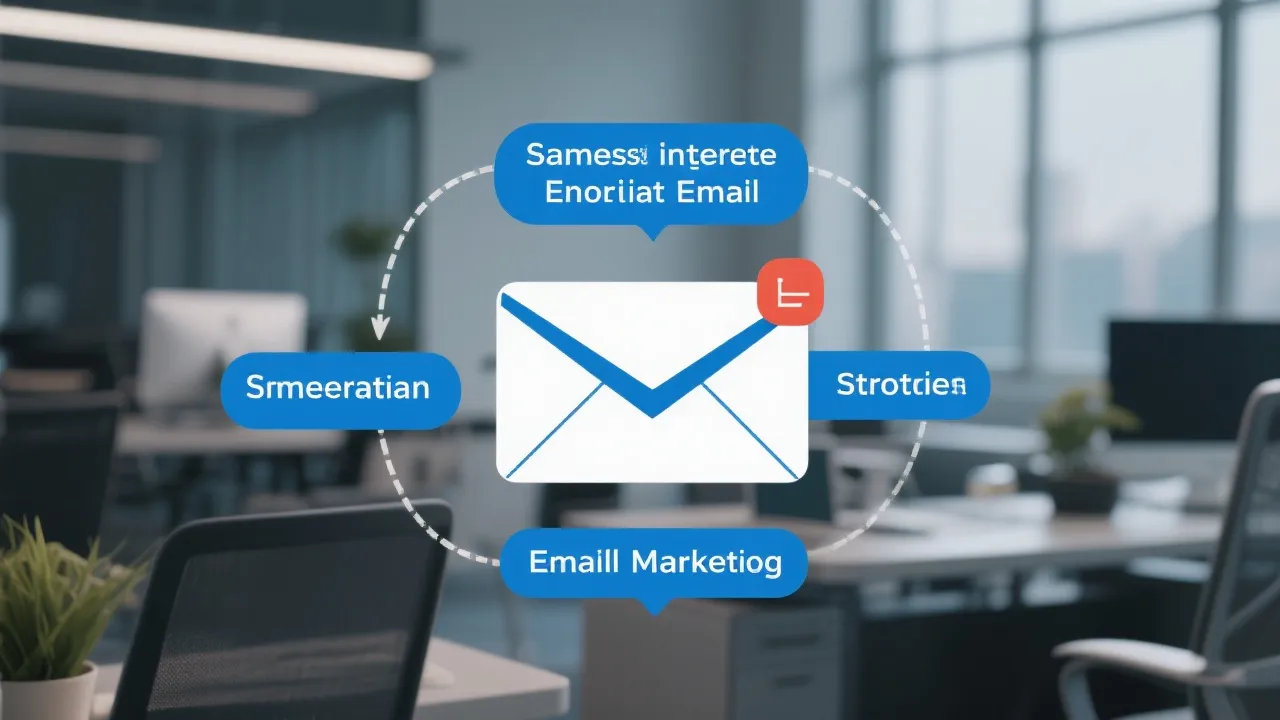Maximizing Efficiency with Shopify Marketing Automation
Shopify Marketing Automation represents a transformative way for e-commerce merchants to streamline their marketing efforts. Through advanced algorithms and user-friendly interfaces, Shopify enables businesses to automate repetitive marketing tasks, enhance customer engagement, and boost sales. This comprehensive exploration delves into the key aspects of Shopify Marketing Automation, offering insights into its functionality and benefits for online retailers.

Understanding Shopify Marketing Automation
In today's competitive digital marketplace, automation has become a vital tool for e-commerce businesses looking to enhance efficiency and customer engagement. Shopify, a leading e-commerce platform, offers robust marketing automation tools designed to streamline marketing strategies and drive business growth. This comprehensive guide explores the essential elements of Shopify Marketing Automation, shedding light on its capabilities and benefits for online retailers.
The Importance of Marketing Automation
Marketing automation serves as a crucial instrument for businesses aiming to minimize time spent on repetitive tasks while maximizing customer interaction. Automation tools help in scheduling and executing marketing campaigns, nurturing leads, and personalizing customer experiences. With Shopify Marketing Automation, businesses can easily integrate marketing strategies, improve customer retention rates, and ultimately increase sales.
Moreover, in a landscape where consumer expectations are continually evolving, the need for responsive and timely communication becomes paramount. Automated marketing allows brands to stay relevant and present in the minds of their consumers, ensuring they are not only aware of promotions and updates but also feel valued. This creates a sense of connection, which is essential for building customer loyalty over time. By automating these processes, companies are freed up to innovate and enhance their product offerings rather than getting bogged down by mundane tasks.
Key Features of Shopify Marketing Automation
Shopify’s marketing automation features are designed to enhance user experience and improve operational efficiency. Some of the key features include:
- Email Campaign Automation: This allows merchants to create, schedule, and automate tailored email campaigns to target specific customer segments. By segmenting their audience based on previous interactions and behaviors, businesses can send more relevant messages that resonate with recipients.
- Segmentation and Targeting: Advanced segmentation enables personalized marketing, targeting specific customer behaviors, demographics, or purchase history. This ensures that customers receive messages that are pertinent to their interests, increasing the likelihood of engagement and conversion.
- Abandoned Cart Recovery: Automated emails sent to customers who leave items in their cart can significantly recover lost sales. Research indicates that a significant percentage of online shoppers abandon their carts. By sending a reminder or an incentive, such as a discount, retailers can persuade customers to finalize their purchases.
- Analytics and Reporting: Streamlined dashboards offer valuable insights into campaign performance and customer behavior, allowing for data-driven decisions. This feature provides businesses with an understanding of what is working and what needs refinement, thus optimizing marketing strategies over time.
Integrating Shopify Marketing Automation
Seamless integration with existing e-commerce frameworks is a centerpiece of Shopify’s approach. Like many cloud-based platforms, Shopify allows third-party app integrations, enhancing its automation capabilities. Merchants can integrate various tools and services to expand and customize their automation flows, such as CRM systems, social media marketing platforms, and more.
For businesses to maximize their automation efforts, it's essential to choose the right tools that align with their goals. For instance, integrating a CRM can help streamline customer relationship management, while utilizing analytics tools can further enhance data-driven decision-making processes. The flexibility offered by Shopify means that business owners can create a marketing ecosystem tailored specifically to their needs, streamlining processes that were once time-consuming.
Benefits of Marketing Automation with Shopify
The use of Shopify Marketing Automation offers several benefits for businesses of all sizes:
- Increased Efficiency: By automating repetitive tasks, businesses can allocate resources more effectively and focus on strategic growth initiatives. This means that staff can dedicate their time to more critical tasks, such as customer service and product development, rather than administrative functions.
- Improved Customer Engagement: Personalized marketing strategies increase customer engagement and loyalty. Customers appreciate targeting in marketing messages, feeling understood by brands that cater specifically to their needs and preferences.
- Enhanced Analytics: Data-driven decision-making is facilitated through comprehensive reports and performance metrics. Beyond just tracking opens and clicks, advanced analytics provide insights into customer journeys, revealing areas for improvement.
- Cost-Effectiveness: Automating marketing efforts reduces manual work and related costs. This allows even small businesses with limited budgets to execute comprehensive marketing strategies on par with larger competitors.
Additionally, the data accumulated through automation can be invaluable for future marketing efforts. Understanding past behavior and preferences enables businesses to anticipate customer needs better and deliver timely, relevant content and promotions.
Challenges and Considerations
Implementing Shopify Marketing Automation is not without its challenges. Businesses need to carefully consider:
- Initial Setup and Learning Curve: Understanding the full capabilities of Shopify’s automation tools requires time and training. New users may find the breadth of features overwhelming, which can delay implementation.
- Data Management: Ensuring data accuracy and compliance with privacy regulations is essential when implementing automated marketing strategies. With regulations like GDPR in Europe and CCPA in California, businesses must be diligent in how they collect, store, and use customer data.
- Maintaining Customer Personalization: Finding the right balance between automation and personalization can be challenging but is key to customer satisfaction. Over-automation can lead to generic messages that fail to resonate, pushing customers away instead of engaging them.
To address these challenges, businesses should invest in training resources and consider consulting with experts when necessary. The advantages of marketing automation will outweigh the initial hurdles if approached strategically. Techniques such as A/B testing can help fine-tune automated messages to ensure they align closely with customer expectations.
| Feature | Benefit |
|---|---|
| Email Campaign Automation | Enables personalized customer outreach and improved engagement. |
| Segmentation and Targeting | Facilitates tailored marketing approaches based on customer data. |
| Abandoned Cart Recovery | Helps recover potential lost sales and increases conversion rates. |
| Analytics and Reporting | Provides actionable insights to refine marketing strategies. |
Industry Insights and Expert Analysis
According to industry reports, businesses leveraging marketing automation witness an average increase of 14% in sales productivity and a 12% reduction in marketing overhead. Experts suggest that the careful integration and management of these tools can further elevate the performance metrics of e-commerce entities. The scalability offered by platforms like Shopify makes it an attractive option for both small enterprises and large retailers.
Furthermore, as marketing technology continues to evolve, recent trends indicate a surge in the use of AI-driven tools to supplement marketing automation efforts. These technologies can analyze vast amounts of data to predict customer behaviors, automate responses, and refine targeting strategies. By integrating AI into the Shopify ecosystem, businesses can take their marketing automation to the next level, enabling smarter decision-making processes and deeper insights into consumer preferences.
The adoption of omnichannel marketing is another critical trend wherein automation tools facilitate cohesive branding across various customer touchpoints. From social media to email lists, businesses using Shopify Marketing Automation can ensure a consistent message that resonates with customers regardless of where they engage.
FAQs
What is Shopify Marketing Automation?
Shopify Marketing Automation is a suite of tools designed to automate marketing tasks, improve efficiency, and enhance customer interaction on Shopify's e-commerce platform.
How does marketing automation enhance customer engagement?
By automating personalized communication and marketing strategies, businesses can maintain consistent, targeted interaction with customers, resulting in improved engagement and loyalty. This ongoing interaction ensures that consumers feel valued, fostering a long-term connection with the brand.
Can Shopify Marketing Automation be integrated with other tools?
Yes, Shopify supports integration with various third-party applications such as CRM systems, analytics tools, and social media marketing platforms, allowing for extensive customization of marketing automation workflows. This flexibility allows Shopify merchants to build a comprehensive marketing tech stack that suits their specific business needs.
What are the initial steps to implement Shopify Marketing Automation?
The initial steps involve evaluating your current marketing processes, identifying areas that can be enhanced through automation, and selecting the right automation tools. Set clear goals for what you want to achieve (e.g., increased email open rates, improved customer retention, etc.), and then begin creating and testing automated workflows to meet those objectives.
Conclusion
Shopify Marketing Automation provides a formidable advantage for e-commerce businesses looking to streamline operations while enhancing customer engagement. By leveraging these tools, businesses can not only save time and reduce costs but also create a more personalized shopping experience for consumers. As digital commerce continues to evolve, the role of marketing automation will become increasingly pivotal in establishing and maintaining competitive edges in a fast-paced market environment.
Additionally, as consumers continue to demand more from their shopping experiences, the necessity for businesses to adapt to these evolving expectations cannot be understated. Whether it's through integrating advanced technologies or optimizing their customer interactions using automation, companies that prioritize effective marketing strategies will ultimately emerge as leaders in their respective industries. With platforms like Shopify at their disposal, the potential for growth and enhancement in customer experience is vast, and the future of e-commerce is looking brighter than ever.










